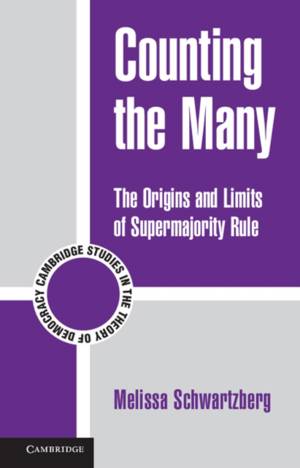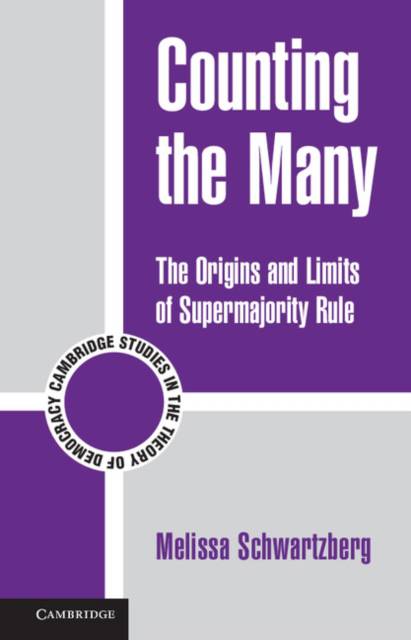
- Afhalen na 1 uur in een winkel met voorraad
- Gratis thuislevering in België vanaf € 30
- Ruim aanbod met 7 miljoen producten
- Afhalen na 1 uur in een winkel met voorraad
- Gratis thuislevering in België vanaf € 30
- Ruim aanbod met 7 miljoen producten
Zoeken
€ 43,45
+ 86 punten
Uitvoering
Omschrijving
Supermajority rules govern many features of our lives in common: from the selection of textbooks for our children's schools to residential covenants, from the policy choices of state and federal legislatures to constitutional amendments. It is usually assumed that these rules are not only normatively unproblematic but necessary to achieve the goals of institutional stability, consensus, and minority protections. In this book, Melissa Schwartzberg challenges the logic underlying the use of supermajority rule as an alternative to majority decision making. She traces the hidden history of supermajority decision making, which originally emerged as an alternative to unanimous rule, and highlights the tensions in the contemporary use of supermajority rules as an alternative to majority rule. Although supermajority rules ostensibly aim to reduce the purported risks associated with majority decision making, they do so at the cost of introducing new liabilities associated with the biased judgments they generate and secure.
Specificaties
Betrokkenen
- Auteur(s):
- Uitgeverij:
Inhoud
- Aantal bladzijden:
- 248
- Taal:
- Engels
- Reeks:
- Reeksnummer:
- nr. 10
Eigenschappen
- Productcode (EAN):
- 9780521124492
- Verschijningsdatum:
- 18/11/2013
- Uitvoering:
- Paperback
- Formaat:
- Trade paperback (VS)
- Afmetingen:
- 137 mm x 213 mm
- Gewicht:
- 294 g

Alleen bij Standaard Boekhandel
+ 86 punten op je klantenkaart van Standaard Boekhandel
Beoordelingen
We publiceren alleen reviews die voldoen aan de voorwaarden voor reviews. Bekijk onze voorwaarden voor reviews.











